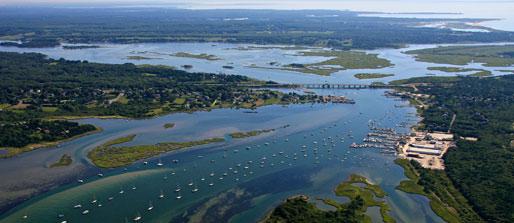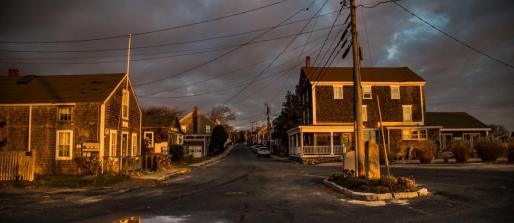Emergency Preparedness
Click any of the following topics for more information below:
Do You Know What to Do?
We need to prepare for severe weather emergencies of all types (blizzards, hurricanes, tornadoes, floods):
- If you lost power for 24 hours, would you know what to do?
- How long does food stay cold in a closed refrigerator with no power?
- If you had to evacuate immediately, what would you bring?
- Do you know where your shelters are?
Helpful Websites
- The Federal Government has a website for emergency preparedness. Check out the website. In a disaster, you may be forced to evacuate or you may be confined to your home. Now is the time to get ready.
- The CDC has a website for Hurricane Readiness. Check out the site for excellent tips to help you prepare for what’s coming.
- The Massachusetts Emergency Management Agency (MEMA) has a website for additional information about MEMA and Preparedness. Also, continue to follow MEMA updates on Twitter and Facebook.
- MEMA is the state agency responsible for coordinating federal, state, local, voluntary, and private resources during emergencies and disasters in the Commonwealth of Massachusetts. MEMA provides leadership to: develop plans for effective response to all hazards, disasters, or threats; train emergency personnel to protect the public; provide information to the citizenry; and assist individuals, families, businesses, and communities to mitigate against, prepare for, and respond to and recover from emergencies, both natural and manmade.
Yes, There Is an "App" For That!
The apps are free to download through your smartphone provider’s app store.
The FEMA smartphone app contains: disaster safety tips, interactive lists for storing your emergency kit, emergency meeting location information, and a map with open shelters and FEMA Disaster Recovery Centers.
The MEMA smartphone app is for ping4alert to receive important weather alerts and emergency messages from MEMA.
Food Preparation
When severe weather is in the forecast, the grocery stores are jammed with people filling their carts with milk, bread, frozen pizzas, soda, and Doritos. But in a real disaster you might wish you made some different choices.
*FEMA recommends a 3-day supply of food and water for each person* with a focus on non-salty food that your family will actually eat. They offer suggestions such as peanut butter, dried fruit, non-perishable pasteurized milk, and lots more good ideas. Click here for more information.
Don't shop for these items on the eve of a storm, shop for them today and store them ready to go when needed!
Pets
Don't forget to include your pets in your disaster plan! The Humane Society says Rule #1 is that if it isn't safe for you, it isn't safe for your pet. If you evacuate, take your pet! It's not hard to put together an emergency kit for your pet that includes food, water, bowls, leash, medical records, and everything else you'll need.
During a Tornado Warning
- In a residence or small building, move to a pre-designated shelter, such as a basement or storm cellar. If there is none, go to an interior room on the lower level, away from windows (closet, interior hallway, bathroom). Put as many walls as possible between you and the outside. Get under a sturdy table and use your arms to cover your head and neck.
- Do not open windows. Use the time to seek shelter.
- Go to the center of the room, avoiding the corners, which attract debris.
- In large public buildings, go to predetermined shelter areas. Interior hallways on the lowest floor are usually safest. Stay away from windows and open spaces.
- In a high-rise building, go to a small interior room or hallway on the lowest possible floor.
- Get out of vehicles, trailers, and mobile homes immediately and go to the lowest floor of a sturdy nearby building. Never try to out run a tornado in a congested area.
- If caught outside with no shelter, lie flat in a nearby ditch or depression and cover your head with your hands. Be aware of the potential of flooding.
- Do not go under a bridge or overpass. You are safe in a low, flat location.
- Watch out for flying debris from tornadoes, which is the cause of most fatalities and injuries.
- For additional information about tornandos, click here: http://www.basementguides.com/tornado-safety-guide/
After a Severe Weather Condition
- Listen to the media for the latest emergency information.
- Be aware of broken glass and downed power lines.
- Help injured or trapped persons. Do not attempt to move seriously injured persons unless they are in immediate danger of death or further injury.
- Stay out of damaged buildings, returning only when authorities deem it safe
- Use the telephone only in emergencies. Texting is more likely to work.
- Leave the area if you smell gas or chemical fumes.
- Take photographs/video of the damage for insurance purposes.
- Remember to help your neighbors, particularly those who may require special assistance.
- Protect yourself from carbon monoxide poisoning.
- Keep drinking water and food safe.
- Prevent electrical injuries.
- Clean your home and stop mold. For more information on mold clean up and prevention, click here: https://www.epa.gov/mold/brief-guide-mold-moisture-and-your-home
Wishful thinking is no substitute for planning and it can mean the difference between a minor inconvenience and a major disaster!
Planning
It's important that we do several things:
- Build an emergency/disaster supply kit.
- Make a record of personal property, taking photographs/video of your belongings. Store these documents in a safe place.
- Make a family emergency plan and include your pets and farm animals.
- Be informed about the different types of emergencies that could occur, their appropriate responses, and the terms used by meteorologists.
- Purchase a NOAA Weather Radio with a battery backup and tone-alert feature as well as a battery-powered commercial radio and extra batteries.
- Determine locations to seek shelter, such as a basement or storm cellar. If an underground location is not available, identify an interior room or hallway on the lowest floor. Identify where your local shelters are located.
- Know locations of designated shelters in places where your family spends time such as public buildings, nursing homes, shopping centers, and schools.
MEMA's Winter Preparedness Steps to Take Before the Storm
Before snow, ice, and severe winter weather hit the region, it is important that you take the proper steps to ensure the safety of your family and home:
- Understand the winter terminology used by weather forecasters:
- Winter Storm Watch – Be alert, a storm is likely.
- Winter Storm Warning – Take action, the storm is in or entering the area.
- Blizzard Warning – Snow and strong winds combined will produce blinding snow, near zero visibility, deep drifts, and life-threatening wind chill. Seek refuge immediately.
- Winter Weather Advisory – Winter weather conditions are expected to cause significant inconveniences and may be hazardous, especially to motorists.
- Frost/Freeze Warning – Below freezing temperatures are expected and may cause damage to plants, crops, or fruit trees.
- Ensure your Winter Emergency Supply Kit is stocked with supplies to enable you to survive on your own for at least three to five days. There should be a first-aid kit, essential prescription medicines, non-perishable foods (those that require no refrigeration such as canned goods, dried fruits and nuts), a manual can opener, water (one gallon per person, per day), flashlights and extra batteries along with a portable radio or NOAA Weather Radio, baby-care or pet supplies items, extra blankets, sleeping bags, and a fire extinguisher.
- Ensure that your Winter Emergency Car Kit is well stocked to keep you and your vehicle safe.
- If a storm is coming that may bring power outages, fully charge your cell phone, laptop, and any other devices in advance of a power outage.
- Do not call 9-1-1 to report your power outage or to ask for information, use 9-1-1 only for emergencies. Contact your utility company to report the outage and get restoration information. Call 2-1-1 with other winter-related issues.
- Consider purchasing a solar-powered or hand crank charger. If you own a car, purchase a car phone charger to enable you to charge your phone if you lose power at your home.
- Download the free ping4alert! app to your smartphone to receive important weather alerts and messages from MEMA. Easy instructions are available by clicking here.
- Trim dead tree branches and limbs close to your home. Ice, snow, and wind can combine to snap limbs that can take down power lines or damage your home.
- Clean gutters. Melting snow and ice can build up if gutters are clogged with debris. When thawing begins, the water can back up under your roof and eaves, causing damage to walls and ceilings.
- Check your homeowner’s insurance policy to ensure adequate coverage.
- Ensure that your Smoke and Carbon Monoxide (CO) detectors are working correctly and have fresh batteries. Check your outside fuel exhaust vents, making sure that they are not obstructed by snow or ice. Never use cooking equipment intended for outside use indoors as a heat source or cooking device.
- Have your chimney flue checked for any buildup of creosote and cleaned if necessary to lessen the risk of fire.
- Have sufficient heating fuel, as regular sources may be cut off. Have the option of emergency heating equipment and fuel (a gas fireplace, wood burning stove, or fireplace) so you can safely keep at least one room livable. Be sure the room is well ventilated.
- Make sure your home is properly insulated. Caulk and weather-strip doors and windows to keep cold air out.
- Install storm windows or cover windows with plastic from the inside to provide insulation.
- To keep pipes from freezing, wrap them in insulation or layers of newspapers, covering the newspapers with plastic to keep out moisture. Let faucets drip a little to avoid freezing.
- Know how to safely shut off gas, electric power, and water valves.
- If your water supply could be affected by a power outage (a well-water pump system), be prepared to fill your bathtub and spare containers with water. Water in the bathtub should be used for sanitation purposes only, not as drinking water. Pouring a pail of water from the tub directly into the bowl can flush a toilet.
- If pipes freeze, remove insulation, completely open all faucets, and pour hot water over the pipes, starting where they are most exposed to the cold. A hand-held hair dryer, used with caution, also works well.
- If electric power is lost, do not open the refrigerator or freezer door. Food can stay cold in a full refrigerator for up to 24 hours and in a well-packed freezer for 48 hours (24 hours if it is half-packed). If you have medication that requires refrigeration, check with your pharmacist for guidance on proper storage during an extended outage.
- Review the process for manually operating your electric garage door.
- Be a Good Neighbor. Check in on friends, family, and neighbors, particularly those most susceptible to extreme temperatures and power outages such as seniors and those with access and functional needs.
MEMA is the state agency charged with ensuring the state is prepared to withstand, respond to, and recover from all types of emergencies and disasters, including natural hazards, accidents, deliberate attacks, and technological and infrastructure failures.
MEMA's staff of professional planners, communications specialists, and operations and support personnel is committed to an all hazards approach to emergency management. By building and sustaining effective partnerships with federal, state, and local government agencies, and with the private sector - individuals, families, non-profits, and businesses - MEMA ensures the Commonwealth's ability to rapidly recover from large and small disasters by assessing and mitigating threats and hazards, enhancing preparedness, ensuring effective response, and strengthening our capacity to rebuild and recover. For additional information about MEMA and Winter Preparedness, click here to visit the MEMA website. Continue to follow MEMA updates on Twitter, Facebook, and YouTube. Download the free ping4alert! app to your smartphone to receive important weather alerts and messages from MEMA. Easy instructions are available by clicking here.







